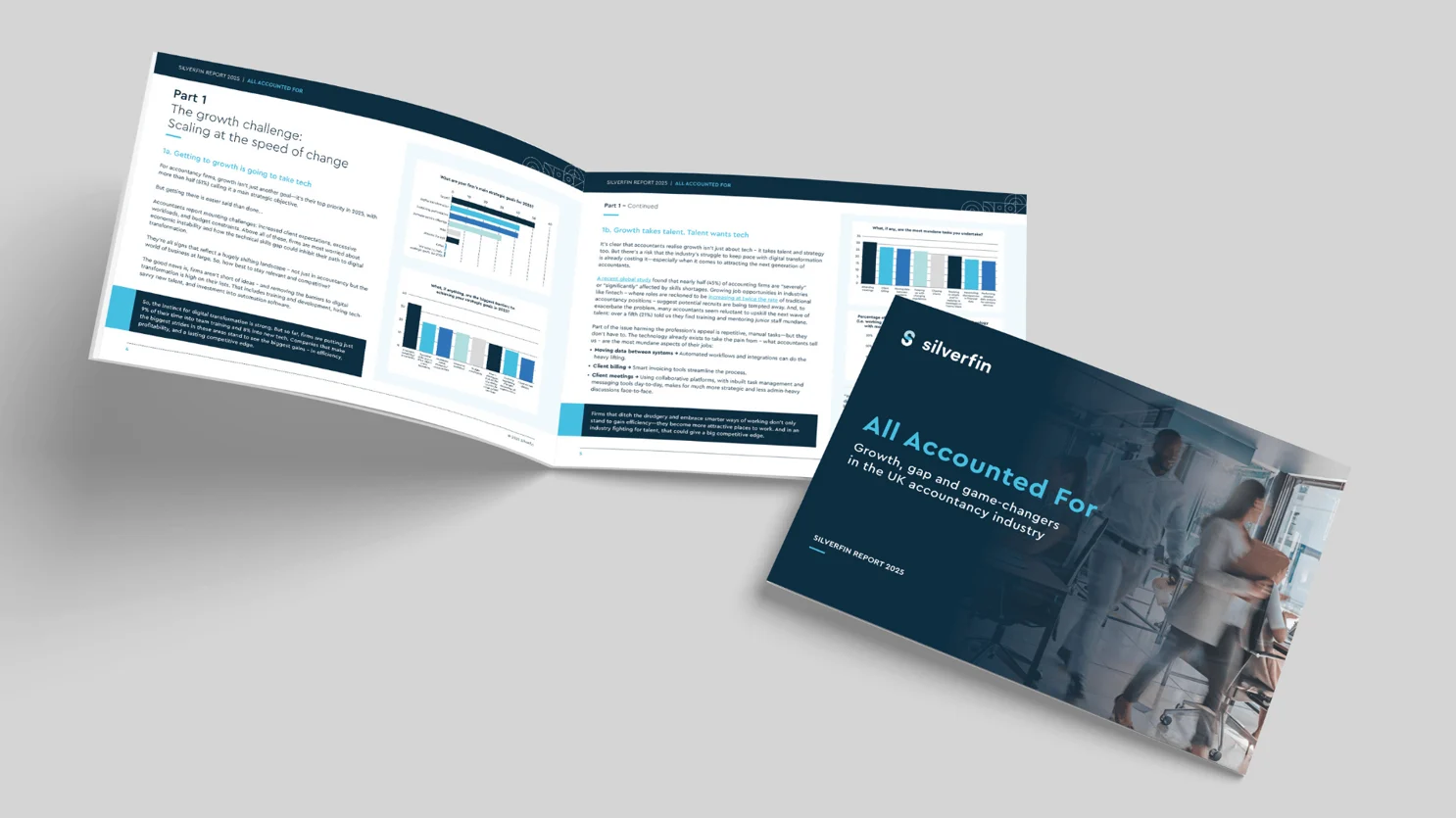With so much financial data changing every day, the modern accounting firm needs streamlined processes and the right tools to manage them while staying compliant.
But with firms using a different tech stack (as well as clients), it’s difficult to bridge the gaps between the disparate systems.
Unless you’re using integration APIs.
These tools can ensure seamless communication, enhance efficiency, and help unlock more value from your data.
What is an API?
An API enables software applications to communicate effortlessly. It automates the exchange, management and storage of financial information.
It provides a standardised way for applications to interact, helping eliminate the need for manual data entry, reduce errors and ensure that financial records are consistent and up-to-date.
API integrations for accounting support a wide variety of functions, from syncing transaction records to generating financial reports, enabling accountancy firms to automate workflows, enhance productivity, and boost operational efficiency.
RELATED: Redefining Standards with Advanced Accounting Compliance Software
How API Integrations Can Help Your Accountancy Firm
With over 83% of enterprises leveraging APIs to boost their digital asset ROI, it’s clear that API integrations for accounting can hold immense value.
Here’s how it can transform your firm:
It’s an Easy Way to Connect All Your Cloud Apps
APIs simplify the integration of cloud applications, enabling your firm to create a cohesive ecosystem of financial tools.
This connectivity allows for real-time data sharing and management, ensuring that all applications are synchronised and up-to-date.
By facilitating smooth communication between different platforms, APIs eliminate data silos, making information more accessible and actionable. This seamless API integration for accounting increases your firm’s operational efficiency and is something that innovative software providers agree is key.
RELATED: Optimising Your Firm’s Capabilities with Accounting Firm Software
Build Custom Solutions Through Integrations
API integrations also give you the flexibility to design custom solutions that cater specifically to your workflow and client needs.
By connecting your tech stack, you can create a tailored system that maximises efficiency and effectiveness for your firm, leading to improved client satisfaction and a competitive edge in the market.
Unlock All The Value From Your Data
APIs give you access to a vast pool of data across different platforms, enabling your firm to unlock deep insights into financial trends, client behaviour and operational efficiency.
With no more data silos and a connected data hub, you can:
- Optimise processes.
- Make informed business decisions.
- Leverage insights for strategic planning.
- Identify growth opportunities.
- Tailor services to meet the evolving needs of your clients.
All of this works together to ultimately drive your accounting firm’s long-term success and profitability.
Free Up Resources for More Strategic Activities
By automating the exchange of data and reducing manual tasks, accounting APIs free up your team’s time to focus on more strategic, high-value activities.
With more resources available, your accountants can concentrate on needle-moving tasks like advisory services and developing client relationships rather than getting bogged down by routine data entry or system maintenance tasks.
The enhanced efficiency in operations has a knock-on effect on profitability, helping you unlock new revenue opportunities.
Improve Your Firm’s Productivity and Client Retention Rates
With repetitive tasks automated and data management processes streamlined with accounting API integrations, you will also reduce the risk of human errors and save time.
Your junior staff will make fewer mistakes, and your senior accountants won’t need to invest hours into checking and re-entering data.
The automation of data flows also ensures that financial reports are always up-to-date and compliant with templates that are auto-populated with real-time data.
With more time on your hands, your firm can handle more clients while delivering faster, more accurate services.
Moreover, a productive team enhances your firm’s reputation and leads to higher client retention rates.
Future-Proof Your Accountancy Firm with Scalable API integrations
The scalability of API integrations means that your systems can adapt as your firm grows without needing major overhauls.
This means your firm can handle an increasing volume of data, more complex data analysis, and a broader range of services without compromising on quality or performance.
In a nutshell, it future-proofs your business, making it more resilient to changes in the market and better positioned to seize new opportunities.
Your Gateway to Enhanced Accounting Efficiency
Adopting API integrations is a strategic move for any accountancy firm looking to enhance its operations and client service.
These integrations offer a pathway to streamlined workflows, better data management, and improved decision-making capabilities. It enables you to get the most out of your tech stack by helping you effortlessly scale, improve efficiency, and create customised solutions.
And Silverfin can help you get there.
By leveraging the vast capabilities of the Silverfin API, you can seamlessly connect your own applications to Silverfin and improve your financial management capabilities without sacrificing efficiency or accuracy.
Book a demo today to see how Silverfin’s API-enabled platform for accounting can transform your compliance workflows.
Discover firsthand how Silverfin’s innovative platform can streamline your operations, empower better decision-making, and set your firm up for future success.
Frequently Asked Questions
Here are a few FAQs around API integrations for accountancy firms.
- Why are API integrations important for modern accountancy firms? API integrations are important for accountancy firms because they enable different systems to connect together, eliminating data silos, streamlining processes and saving time.
- Do I need developers to integrate via APIs? Getting systems to talk to one another doesn’t necessarily have to be complex. Providing your vendor offers clear documentation on the different end points available, and how to connect to them, it can be relatively straightforward to get applications working together in harmony.
- What are the challenges of implementing API integrations for accountancy firms? One of the biggest challenges with API integrations is technical complexity. Depending on your systems, you might need technical expertise to integrate APIs. Other challenges include maintenance and cost if you’re wanting a custom build or the monthly subscription fees for integration platforms. At Silverfin, we’ve ensured that we’ve taken the hard work out of it. Firstly by building out-the-box connectors (or syncs in our language) to integrate with bookkeeping systems like Xero and Quickbooks in moments. And secondly, by creating fully documented open APIs which have been battle-hardened through integrations with over 50 third-party vendors.














